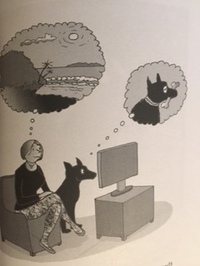"Nowhere is there a more idyllic spot, a vacation home more private and peaceful, than in one's mind, especially when it is furnished in such a way that the merest inward glance induces ease," wrote Marcus Aurelius wrote in his "Meditations."
Hundreds of years before meditation became popular in our culture, the Roman emperor recognized this great asset of the human mind. While the body may be confined to a physical space, the mind is free to roam.
The images we create in our own mind wield a great impact on our mood. Minds travel to light, airy places, lifting our spirits, or conversely, they imagine negative situations, (like dark, dank caves) that can cause us to spiral into hopelessness.
Since Aurelius' day, volumes have been written on meditation techniques. Herbert Benson's The Relaxation Response (1971) was a best seller that helped to westernize yoga practice. Throughout her book Thrive (2014), Arianna Huffington mentions meditation and its variations as an essential element to well-being.
Some of us utilize this gift without realizing it. For example,as a child, Ms. I. awakened early in the morning to sit on the steps of her suburban home before anyone else awakened unaware that she was taking mini-mental vacations from her family and the demands of the day.
It is likely that many subway riders plugged into their headphones, escape the local scene to visualize an idyllic journey.
Conclusion: Becoming aware of the mind's power to incorporate mini-vacations into our daily lives, regardless of the method used, can serve to reduce stress in a few seconds.
